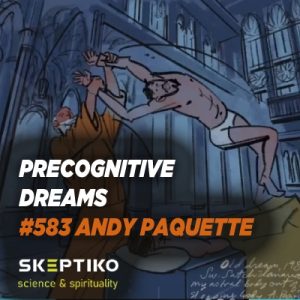On the subject of dreams, it depends what subcategory you are interested in. I don't like most of the books I've seen on dreams because they are written by people who don't understand the subject very well. The interesting material I've found tends to be incidental to some other subject, like Dr. Ian Stevenson's work on reincarnation. He occasionally mentions dreams experienced by children who claim to remember a past life, or people related to the case. Those can be very interesting and have merit as evidence.
I've written a number of peer-reviewed articles on aspects of dreaming that are all publicly available on either academia.com or
researchgate.net. If you go to Research Gate, be aware that my 6 articles on dreams are buried by my 58 other articles on computer graphics and a couple on the development of expertise, so you'll have to look for them.
I'm not that interested in dream dictionaries, which are essentially symbol libraries, because I disagree that symbols are common or that they have common interpretations. I wrote an article about it. If you want to see my argument,
it is here.
Dr. David Ryback wrote the book, Dreams that come true. At the time I first read it, it was very interesting. Since then, I wrote my own book, and prefer it to Ryback's. The principal reason is that Ryback, like other authors, have an "outside looking in" perspective that makes it difficult to discuss or understand the dreams they are writing about.
I have read some interesting peer-reviewed articles, quite a lot of them, on various aspects of dreaming. These range from ethnographic studies of dreams in tribal societies, the impact of dreams on religion, studies on dream telepathy by Stanley Krippner, and even a paper Stevenson wrote on dreams in the context of his reincarnation studies.
I've read a number of science-oriented books on psi by authors like Charles Tart, Dean Radin, and Rupert Sheldrake. They rarely touch on dreams in any depth and can be dry for readers who don't enjoy looking at tables or seeing interesting dream content reduced to numbers but they are all good authors. The literature of Near Death Experiences (NDE) and Out of Body (OOB) experiences sometimes overlap with dreams, though not a lot.
The most interesting dreams I've ever read about are either biblical or were experienced in a religious context, such as a student in India dreaming of his guru, or a 16th century monk dreaming of anything from a spiritual topic to something newsworthy from the time period.



